
A point, whether of an idea, joke or tapered object, is always arrived at in the immediate. You get the point when you get the point. Even if you don’t get the point right away, when you do get it, you get it at a precise moment.

In the game of darts you get points by getting the point of your dart to stick to a point aimed at, but over and above the mechanics of the game the real point is to enjoy it.
But why? Why do we enjoy what we do?

Science says that enjoyment is a matter of brain chemistry. A characteristic of people with depression and mental illness is anhedonia: an inability to gain pleasure from normally pleasurable experiences.

Brain expert Dr. Stuber PhD might say (and did), “GABA neurons located in the VTA are just microns away from dopamine and are negative regulators of dopamine function… A dysfunction in these GABA neurons might potentially underlie different aspects of neuropsychiatric illness, such as depression” (UNC Healthcare).
Psychologists treat happiness as if it’s mysterious. They recommend working on a meaningful career, spending time with friends, savoring the day and so on, but happiness doesn’t come from outside.
Assuming your GABA neurons aren’t buzz-killing dopamine release, there are as many ways to enjoy as there are people but it boils down to one thing: We enjoy what we enjoy (because we enjoy it).
It’s circular – like Donna Summer singing, “Love to love you baby.”

X is true because of Y. Y is true because of X. We dance because it’s enjoyable. It’s enjoyable because we dance. We play to have fun and have fun when we play. If we’re forced to play, it isn’t play anymore. It’s emotion first, then realization and confabulation.

If the point of enjoyment is to enjoy, the question is: What is the meaning of true enjoyment? This was asked in Quora (a question-and-answer site) and people responded. (Note: names have been changed to protect the anonymous).
Tommy said enjoyment is, “Celebrating life, not one’s life; just life!” Dieter said enjoyment is, “Living the moment.”

Sally listed enjoyments: “Looking at the smile of a new born baby. Eating Mango by plucking and stealing it from an orchard. Getting wet in rain without bothering about getting wet.”

Simon said, “Everyone has different meaning of enjoyment! They have different source of enjoyment but for me … it’s something which I do for myself!”
And there it is.
Maybe there’s a little Simon in all of us. There’s just something about one’s self that makes it special to one’s self. To you, there’s no you quite like you.
Psychologists say it’s good to love one’s self. Why, if there was no you – no you as a living organism with thoughts and feelings in an environment – there would be…what?

But vain self-importance blocks the flow of enjoyment like crimping a garden hose. When things don’t go the way we want, we’re unhappy so the trick is to loosen up and enjoy what you get (see post: Is it serious?).
 We have a limited idea of who we are. Yes, we are each a bag of skin crowned by a cranium, but do we end in skin? What about air in lungs and energy from the sun in our bellies? Going into atoms we see nothing there – just energy waves. We’re energy waves. Not that this matters when you stub your toe, but a “hard” world is softened with a realization of how interconnected and diaphanous (light and insubstantial) this all is.
We have a limited idea of who we are. Yes, we are each a bag of skin crowned by a cranium, but do we end in skin? What about air in lungs and energy from the sun in our bellies? Going into atoms we see nothing there – just energy waves. We’re energy waves. Not that this matters when you stub your toe, but a “hard” world is softened with a realization of how interconnected and diaphanous (light and insubstantial) this all is.
Philosopher Alan Watts saw interconnections, saying, “where there are no flowers there are no bees, and where there are no bees there are no flowers. They’re really one organism” (Conversation With Myself).

A dandelion seed has fine hairs allowing it to ride on the wind. The wind is, in a manner of speaking, a part of itself. Why do advertisers associate their product with love and happiness? It isn’t the product in itself that we want: it’s the feeling the product is said to impart.
 What you love is what you enjoy. Enjoyment is a one step process: Express love for something and you are happy.
What you love is what you enjoy. Enjoyment is a one step process: Express love for something and you are happy.
Author of The Element (2009), Ken Robinson, said, “To be in your element you have to love it… Being good at something is not a good enough reason to do it…It’s about finding the thing that resonates within you most fully” (see Ken Robinson video).
There’s a little verse from an ancient Hindu text called the Rig Veda that tells of the tree of life and two birds. One bird eats the tree’s fruit (some good some bad) and the other watches. They represent two aspects of ourselves. We are the bird eating – we participate in the action of life (killing and eating), experiencing joy and sorrow – but in contemplation, we are the second bird who watches. The trick is to be aware of the second bird watching the first bird participating.

You walk into a forest and suddenly you are struck by the wonder of this place. You feel the mystery of being and life itself. A cedar waxwing flies by. That such a creature should be there! That the universe should be here! That’s something that excites you to wonder. Take a deep breath and simply enjoy (see also: The Point of Enjoyment 2).
 You’re up before the sun “working in a coal mine, going down down,” and someone says, “Lord! I am soooo tired. How long can
You’re up before the sun “working in a coal mine, going down down,” and someone says, “Lord! I am soooo tired. How long can  But few people see signs these days and those who do are maligned. We might crave a vision but all we have is TV. It’s not because the signs aren’t there that we don’t see them.
But few people see signs these days and those who do are maligned. We might crave a vision but all we have is TV. It’s not because the signs aren’t there that we don’t see them.


 No sooner do you have this realization when you see a sign. But it isn’t the sign that catches your attention. It’s the sign spinner. Stopped at a streetlight, you watch the sign spinner. Suddenly life doesn’t seem so bad.
No sooner do you have this realization when you see a sign. But it isn’t the sign that catches your attention. It’s the sign spinner. Stopped at a streetlight, you watch the sign spinner. Suddenly life doesn’t seem so bad. What you thought was going to be “one of those days” changes into something beautiful when you open yourself to connection and possibility.
What you thought was going to be “one of those days” changes into something beautiful when you open yourself to connection and possibility. Jump forward: now you’re in a lab cubicle waiting for a nurse to take your blood. You’re listening to the Moody Blues sing “
Jump forward: now you’re in a lab cubicle waiting for a nurse to take your blood. You’re listening to the Moody Blues sing “



 But when you are lost in gazing at the moon, who are you? Who is the real you – the you who was a child – the secret you – the true you? Who are you when you’re asleep? As Suzanne Little sang in
But when you are lost in gazing at the moon, who are you? Who is the real you – the you who was a child – the secret you – the true you? Who are you when you’re asleep? As Suzanne Little sang in 




 There are men at the next table yelling. Humphrey leans close. “Look at them,” he says. (Marcus complies.) “As long as they are busy and entertained, they will be good but tonight these men will drink and look for a fight. Why? Boredom! And why? Because life has no meaning.”
There are men at the next table yelling. Humphrey leans close. “Look at them,” he says. (Marcus complies.) “As long as they are busy and entertained, they will be good but tonight these men will drink and look for a fight. Why? Boredom! And why? Because life has no meaning.” Marcus holds up a flower. Men at the next table mimic. “What is this?” asks Marcus. A flower, thinks Humphrey. “Is this flower a thing?” Yes. It is a thing (weed actually). “What is a thing?” A thing is an object. “Am I a thing?” No. You are a man. “Why am I not a thing and this flower is?”
Marcus holds up a flower. Men at the next table mimic. “What is this?” asks Marcus. A flower, thinks Humphrey. “Is this flower a thing?” Yes. It is a thing (weed actually). “What is a thing?” A thing is an object. “Am I a thing?” No. You are a man. “Why am I not a thing and this flower is?” “What is the meaning of this thing?” asks Marcus of the flower. It has no meaning. “Would you agree that the purpose of this flower is to flower?” Possibly. “Could the meaning of a bird be that it birds?” Birds bird. Flowers flower. You, you. I get it. “Does not a blue sky mean what it is?” Humphrey isn’t sure. “The trouble is that we word the world. We think ourselves separate. We thing it, or, ‘thing-K’ it.” Marcus emphasizes the hard K sound.
“What is the meaning of this thing?” asks Marcus of the flower. It has no meaning. “Would you agree that the purpose of this flower is to flower?” Possibly. “Could the meaning of a bird be that it birds?” Birds bird. Flowers flower. You, you. I get it. “Does not a blue sky mean what it is?” Humphrey isn’t sure. “The trouble is that we word the world. We think ourselves separate. We thing it, or, ‘thing-K’ it.” Marcus emphasizes the hard K sound. “When we were children, the world was what I’d call spiritual. We didn’t name. We didn’t categorize. We didn’t analyze. We enjoyed. One star was not better than another. We ran around without thinking, ‘Why are we running around?’ It’s like we were in Eden – not the Biblical place – but the feeling of delight, contentment, happiness
“When we were children, the world was what I’d call spiritual. We didn’t name. We didn’t categorize. We didn’t analyze. We enjoyed. One star was not better than another. We ran around without thinking, ‘Why are we running around?’ It’s like we were in Eden – not the Biblical place – but the feeling of delight, contentment, happiness
 BAM! Two tankards of ale are slammed onto the table by a beautiful barmaid. They pick up their drinks and enjoy as a musician plays
BAM! Two tankards of ale are slammed onto the table by a beautiful barmaid. They pick up their drinks and enjoy as a musician plays 
 The feeling within Humphrey switches from boredom to…. a feeling of
The feeling within Humphrey switches from boredom to…. a feeling of  Humphrey and Marcus finished their ale and parted. Humphrey said he’d never forget being intensely aware. He thanked Marcus for pointing out the obvious and for showing him how to enjoy. A few days later, Humphrey died of an abscessed tooth.
Humphrey and Marcus finished their ale and parted. Humphrey said he’d never forget being intensely aware. He thanked Marcus for pointing out the obvious and for showing him how to enjoy. A few days later, Humphrey died of an abscessed tooth.








 Jean-Dominique Bauby (1952-1997) was an editor of ELLE magazine. At 43 he had a stroke that left him paralyzed from head to toe. Despite Bauby’s feeling of being under water and weighted down like a deep sea diver, in his memory and imagination, he was light and free like a butterfly.
Jean-Dominique Bauby (1952-1997) was an editor of ELLE magazine. At 43 he had a stroke that left him paralyzed from head to toe. Despite Bauby’s feeling of being under water and weighted down like a deep sea diver, in his memory and imagination, he was light and free like a butterfly.

 People try to make themselves happy. When Judy Garland sang “
People try to make themselves happy. When Judy Garland sang “

 Think about how a rainbow appears. It’s your eye at the right angle combined with sunlight and water drops. Without you to see, a rainbow doesn’t appear. But a rainbow is more than light refraction. It isn’t a symbol. It has no reason for being. It’s light playing. It’s fun. It’s beauty.
Think about how a rainbow appears. It’s your eye at the right angle combined with sunlight and water drops. Without you to see, a rainbow doesn’t appear. But a rainbow is more than light refraction. It isn’t a symbol. It has no reason for being. It’s light playing. It’s fun. It’s beauty. Imagine yourself as a child. You are fed and content. Your world is not filtered by custom, interpretation, and analysis. The world is new. Imagine seeing a butterfly for the first time!
Imagine yourself as a child. You are fed and content. Your world is not filtered by custom, interpretation, and analysis. The world is new. Imagine seeing a butterfly for the first time! In
In  Even though we know what we should and shouldn’t do, something invariably happens to complicate simplicity and sour generosity. Irritation, frustration and sadness can shred good intentions.
Even though we know what we should and shouldn’t do, something invariably happens to complicate simplicity and sour generosity. Irritation, frustration and sadness can shred good intentions. By the end of the day we’re tired. We wind up flaked out on a chair, covered in cheesie dust. What went wrong? We tried, but therein is our problem. Who was the one trying? Was the spirit willing and the flesh weak? Remember Dr. Schwartz’s scientific dictum, “You are not your brain” (see:
By the end of the day we’re tired. We wind up flaked out on a chair, covered in cheesie dust. What went wrong? We tried, but therein is our problem. Who was the one trying? Was the spirit willing and the flesh weak? Remember Dr. Schwartz’s scientific dictum, “You are not your brain” (see:  Our brains can be like a Siren song luring us like sailors to shipwreck on a rocky coast. Thoughts become habitual through repeated pleasure-seeking and dopamine. Our heart may say, “No-no,” but our brain says, “Yes-yes!” Our brain often urges us to do what we probably shouldn’t.
Our brains can be like a Siren song luring us like sailors to shipwreck on a rocky coast. Thoughts become habitual through repeated pleasure-seeking and dopamine. Our heart may say, “No-no,” but our brain says, “Yes-yes!” Our brain often urges us to do what we probably shouldn’t. We may have more luxuries and conveniences thanks to the magic of technologies, but that doesn’t mean we’re happier. We’re busier. We now lack time to focus on things that produce a quieter happiness.
We may have more luxuries and conveniences thanks to the magic of technologies, but that doesn’t mean we’re happier. We’re busier. We now lack time to focus on things that produce a quieter happiness.

 They rattle on. “I’m really enjoying this car. Are you?” “I love it,” says the passenger.
They rattle on. “I’m really enjoying this car. Are you?” “I love it,” says the passenger.

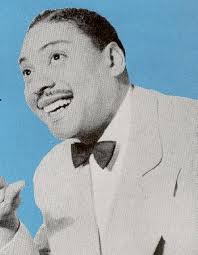
 It’s like what Chris Rock said in Comedians in Cars when Jerry asked him what he thought of a car. Chris Rock said, “I like you Jerry… everything is about the company … If we were in a cab, we would probably be having the same exact conversation.”
It’s like what Chris Rock said in Comedians in Cars when Jerry asked him what he thought of a car. Chris Rock said, “I like you Jerry… everything is about the company … If we were in a cab, we would probably be having the same exact conversation.”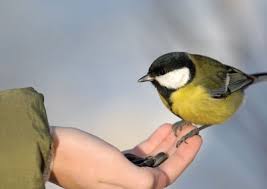

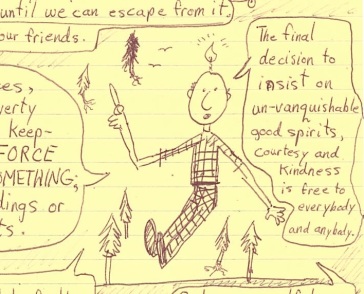
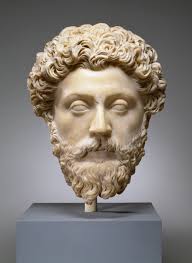
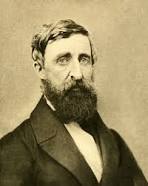


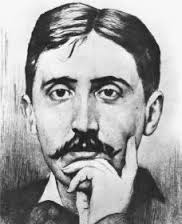






 With imagination (and those mirror neurons), we see from another person’s mind and make choices knowing that another’s well-being is as our own. Kindness towards another is advanced self-interest.
With imagination (and those mirror neurons), we see from another person’s mind and make choices knowing that another’s well-being is as our own. Kindness towards another is advanced self-interest. Train yourself to enjoy like it’s an Olympic event and you’re an enjoyment athlete. Even when you lose, you lose well. Enjoyment hangs like grapes picked like
Train yourself to enjoy like it’s an Olympic event and you’re an enjoyment athlete. Even when you lose, you lose well. Enjoyment hangs like grapes picked like 
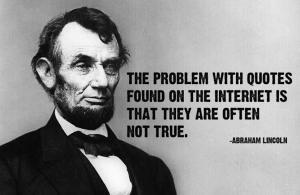







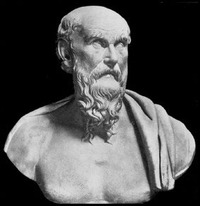




 A philosopher can only smile and do what can be done with a sense of humour. The highest happiness is a reflective life and an examined life, but an unlived life marked by frustration is not worth examining.
A philosopher can only smile and do what can be done with a sense of humour. The highest happiness is a reflective life and an examined life, but an unlived life marked by frustration is not worth examining.